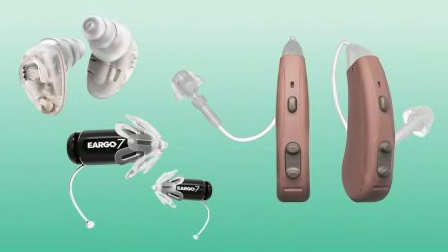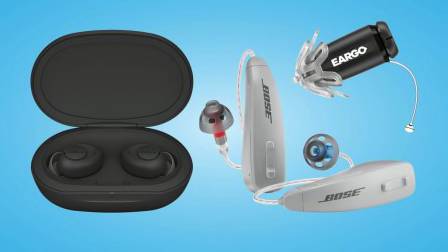How to Make Your Voice Sound Younger
Vocal cords weaken as we age. These steps can help.

Perhaps your voice is raspier than it once was. Or it might sound more quavery. These kinds of problems can be common as we age, often starting in our 60s, and they affect about 19 percent of all older adults.
Respiratory infections such as colds can temporarily affect your voice. But a frequent cause of persistent problems is a condition called presbyphonia. This occurs when your vocal cords naturally shrink and become less able to function as they once did. Below, what to know about presbyphonia, and the best ways to reclaim your voice.
- Is Your Voice Sounding Older?: Why Voice Trouble Can Happen What You Can Do When to See Your Doctor
Why Voice Trouble Can Happen
When you talk, your vocal cords—which are essentially two pieces of muscle in your voice box—usually touch each other and then vibrate, creating sounds. But in some people, vocal cords lose mass over the years, which makes it harder for the two muscles to come together.
What You Can Do
If you experience hoarseness only occasionally, first try focusing on using your voice more—perhaps reading out loud or talking or singing in the shower. This may help prevent your vocal cord muscles from thinning and atrophying as much as they might over time. "It’s the use it or lose it theory," says Brad DeSilva, MD, a clinical professor of otolaryngology at the Ohio State University Wexner Medical Center in Columbus.
But avoid shouting, which can put a strain on your vocal muscles. And if you feel fatigued after using your voice, give it a rest.
Drink plenty of water as well. This hydrates your vocal cords, which helps them to vibrate and create sound. Sipping cold water may also distract you from the urge to clear your throat, an action that can damage vocal cords. Smoking, even secondhand smoke, can irritate vocal cords, too, so take care to reduce your exposure to tobacco smoke.
When to See Your Doctor
If your voice issues continue for more than a month, Huston recommends seeing an otolaryngologist, a doctor who specializes in ear, nose, and throat conditions. You may want to see a doctor sooner if voice changes are causing discomfort or keeping you from being as social as you’d like to be.
Your doctor can determine if you have presbyphonia or might be dealing with another voice-changing medical condition. These may include neurological conditions such as Parkinson’s disease or growths on your vocal cord. Acid reflux can also affect your voice, although it primarily causes burning or pain in the chest and may be overdiagnosed as a cause of vocal changes.
For presbyphonia, your doctor may recommend voice therapy with a speech-language pathologist. This can teach you to project better and improve voice quality, among other benefits, Akst says. Studies suggest that this therapy can ease voice problems significantly, and because it’s noninvasive, anyone with voice changes can try it. Treatment usually lasts a few months, and insurance often covers it.
When voice therapy alone doesn’t help enough, your doctor may offer a procedure to temporarily thicken your vocal cords. It uses occasional filler injections, the same type people use to achieve fuller lips. "If we can give someone puffier, bulkier cords that close more effectively, that can help the voice become stronger," Akst says. Results typically last a few months to a year, depending on the type of filler used, and insurance usually covers it.
Editor’s Note: A version of this article also appeared in the April 2025 issue of Consumer Reports on Health.




















